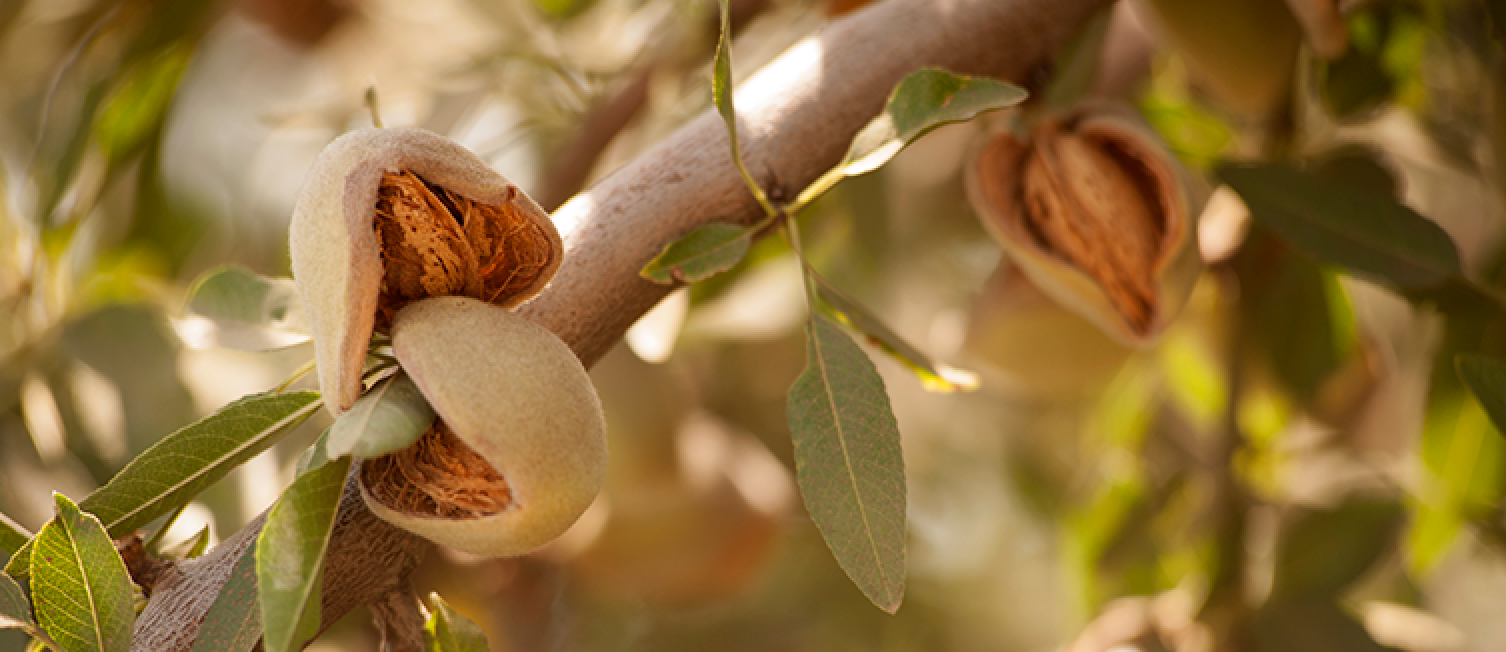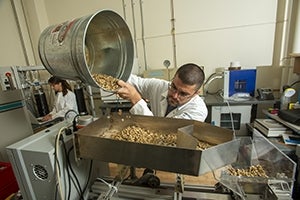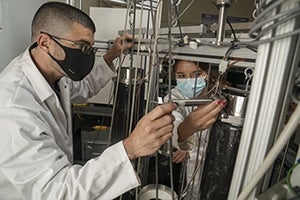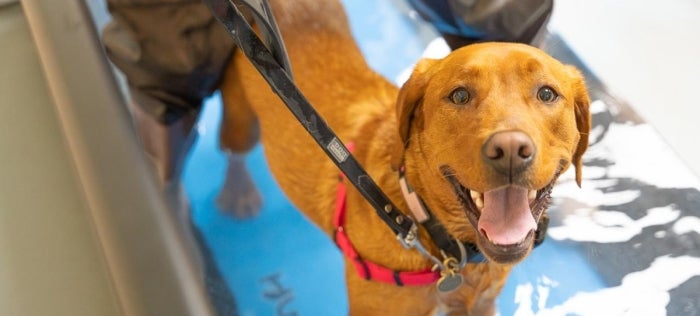
Caring for crops, reducing waste
January 3, 2022—Once crops have been grown and harvested, they must be properly stored, dried and processed before reaching everyday people. For Irwin Ronaldo Donis-González, research specialist in biological and agricultural engineering, finding sustainable methods for this process is a priority.

Donis-González, who is also the associate director of the Postharvest Technology Center, researches safe postharvest handling of crops like fruits, vegetables and tree nuts while finding ways to reduce food waste, assess and maintain their quality, and reduce energy use throughout the process.
“If we do not develop techniques to properly store and transport a product, everything we’ve done in the field—from labor to energy and resources—will be wasted. It’s important that we protect the great quality of what was grown,” he explained.
Recently his team looked at how to efficiently dry almonds after they have been picked. Traditionally, almonds are shaken off trees and left to be dried and picked from orchard grounds, but this can sometimes lead to potential pathogen contamination and create environmental dust.
Donis-González’s team created a stockpile of almonds on an A-frame structure and used a fan to properly dry them—an inexpensive, resourceful way to dehydrate the almonds outside of the orchard ground.

“Everything we do ties into the overarching concept of sustainability,” he explained. “We focus on ecologically and economically sustainable solutions that cost less for farmers and utilize less resources.”
“In certain instances, depending on where you are in the world, you can almost lose or waste up to 50 percent of the products grown, so we want to reduce that whenever possible,” he said.
Donis-González also noted the importance of students, who are often the backbone of the research happening across the university.
“I’ve learned so much from my students,” he said. “They go on to become the next leaders in agriculture, and investing in our research and students is also an investment in our future.”
Students, like faculty, come from all over the world to learn and contribute to the agricultural innovation at UC Davis.
“Being part of the faculty here is very humbling because we are surrounded by open-minded people who embrace that for us to move forward as a global population, we must have a multidisciplinary, multicultural mindset,” Donis-González said.


